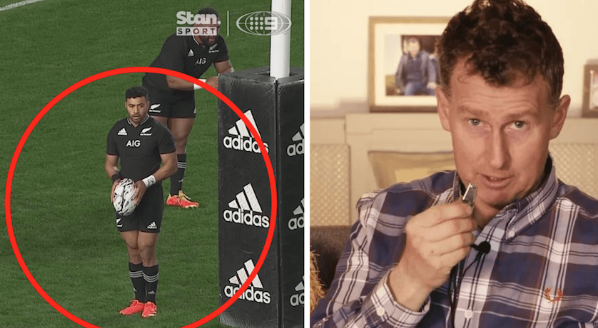Elite-level Rugby Union players diagnosed with a concussion will not be able to return to play for 12 days as a result of changes being introduced by the sport’s world governing body from July 1.
The current regulations allow players who fail a head injury assessment during a game to be back on the field seven days later if they follow return-to-play protocols.
World Rugby’s chief medical officer Dr Eanna Falvey said: “It is going to be a new mindset for coaches and players.
“Our approach means it is now overwhelmingly likely a player diagnosed with a concussion won’t play in their team’s next match.
“World Rugby firmly believes that scientific evidence supports our protocols, but we are continually monitoring and testing them to ensure that they are fit for the modern game.
“We recognise that there are differences in concussion symptoms and concussion history, and this process enables us to further protect elite players by individualising their rehabilitation.
“It also keeps in place all the benefits of the previous protocols, which have been so successful in beginning to tackle under-reporting of symptoms which evidence shows that, while improving, remains an issue.”.
EDITORS PICKS:
- The reason for Joe Marler’s England omission revealed
- Leinster scrum-half speaks publicly about his sexuality
- Five quality free agents that are still without clubs
- Bristol Bears legend leaves the club with immediate effect
- The 5 biggest omissions from Eddie Jones’ England squad explained
Nigel Owens wants FOUR law changes to encourage ‘expansive rugby’

Popular referee Nigel Owens says rugby’s new Laws are NOT working to improve the game.
The Welshman, who hung up his whistle two years ago, has come up with four possible changes to encourage expansive rugby.
#1. Scrap the goal-line dropout
Owens wrote: “As for goal-line dropouts, I was a big fan initially because I felt it would prevent attacking teams from numerous pick-and-gos near the try line, with teams instead attempting to move the ball wide to avoid being held up and losing possession. But I’m not sure it has worked as planned. We still see plenty of pick-and-gos until teams get over, we still see plenty of mauls and the number of collisions hasn’t decreased.
“We are also seeing fewer scrums near the goal line, and to be honest I’m not sure that is a good thing. The scrum needs to be an important part of the game, and right now we are not seeing the benefits of it. Rugby must continue to be a game for all shapes and sizes, and at all levels, too.
Attacking teams are also kicking longer knowing that if the ball rolls dead, the defending team has to do a goal-line dropout and they can get the ball back. We’ve also lost the short dropouts we used to see from the 22-metre line where teams would compete to win the ball back, or a quick dropout would be taken, because teams now backed up on their goal line just kick the ball long to escape and what happens? The opposition kick it back.
“From initially believing it would work, I would now like the goal-line dropout law to go to be honest. If anything it is having a negative effect.”